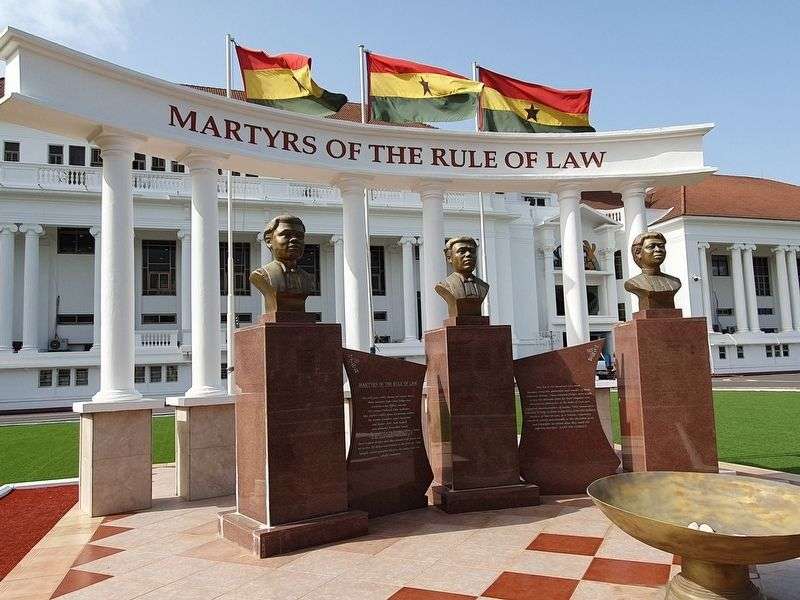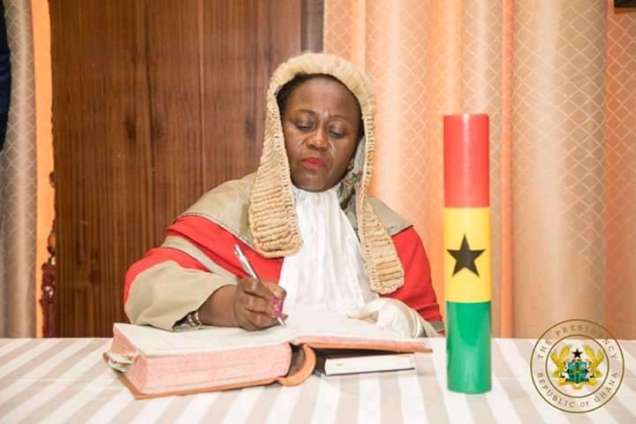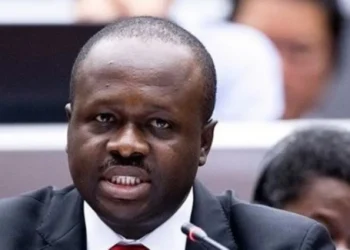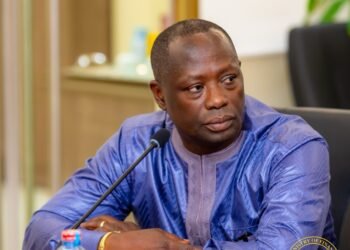The ongoing controversy surrounding the suspension and potential removal of embattled Chief Justice Gertrude Torkornoo has triggered mounting public scrutiny and intensified conversations about judicial independence in Ghana.
Leading policy think tank, IMANI Center for Policy and Education, has weighed in on the issue, raising deep concerns over the procedural integrity of the process and its broader implications for democratic governance.
IMANI Africa pointed out that although the 1992 Constitution provides a general framework for the removal of a Chief Justice, it does not offer specific guidelines on the exact procedures to be followed.
This gap, in their view, leaves room for broad interpretation and the possibility of procedural misuse.
“Therefore, the committee’s decision to make the removal process a litigation is in breach of Article 146(7). Even so, the committee’s failure to follow CI 47 judiciously, as the petitions are not admitted into evidence and the petitioners are exempted from testifying, is also a breach of the rules of court.”
IMANI Center for Policy and Education

IMANI Africa maintained that even if the President has not explicitly breached Article 146 of the Constitution, the conduct of the committee overseeing the process may still violate legal norms.
The think tank cautioned that the committee’s approach could conflict with court rules and potentially undermine the rights and dignity of the suspended Chief Justice.
Demand For Due Process Intensifies Amid Suspended Chief Justice Probe
Accordingly, IMANI Africa urged the general public, particularly those within the legal profession, to speak out against what it identifies as ongoing systemic injustices.
The organization stressed that responses to such issues should be consistent and not only arise when individuals are directly affected.
Reflecting on the situation, IMANI suggested that the current ordeal facing Chief Justice Torkornoo may offer her a deeper understanding of the flaws within the judicial system.

“It should not have taken the [suspended] Chief Justice to be on the ‘left side’ to realise something must be wrong. If Justice Gertrude Torkornoo only knew that tables turn, sooner or later, perhaps she would have dedicated her tenure to correcting infractions in the administration of justice in her beloved country. Wish her the best.”
IMANI Center for Policy and Education
Responding to these troubling issues, IMANI Africa called for urgent reforms within the justice system. The organization emphasized the importance of ensuring transparency, consistency, and compassion at every level of judicial administration.
It stressed that justice must serve everyone equally and not be perceived as a privilege for the influential or a concern only when those in authority are affected.
Judicial officers, IMANI asserted, have a duty beyond interpreting laws—they must actively work to prevent systemic injustices that, if ignored, could eventually impact them personally.
IMANI continued by emphasizing that the judiciary must not wait for moments of personal threat before confronting institutional failures.

“It must not take the threat of removal for our leaders on the Bench to confront the brokenness within the system they serve. This moment calls not just for legal compliance, but for moral courage—one that reaffirms our collective commitment to due process, human dignity, and institutional fairness.”
IMANI Center for Policy and Education
IMANI Africa encouraged the people of Ghana, along with civil society groups and legal experts, to use this moment to advocate for clearly defined procedures governing the removal of top judicial officials.
Establishing such rules, they argued, would help eliminate uncertainty and protect the judiciary from undue political influence.
The organization concluded its position with a resounding message about the role of justice in a functioning democracy. “Justice must not only be inscribed in our Constitution—it must be etched in our daily practice, with vigilance, empathy, and unwavering resolve.”
As the case continues to unfold and garners both national and international attention, many are watching closely to see whether Ghana will rise to this challenge and reaffirm its commitment to judicial independence and institutional fairness.
READ ALSO: Government Expects Fuel Price Stability as Global Oil Markets Cools



















